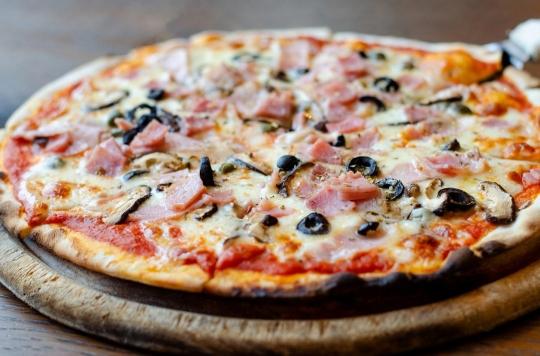Several complaints have been filed with the courts in France.

- The E. coli responsible for HUS are present in the intestines of many ruminant animals (cows, calves, goats, sheep, deer, etc.) and are eliminated through the excrement which can then contaminate the environment and food.
- These bacteria tolerate cold well but are destroyed by cooking.
Friday 1er April, the public prosecutor’s office Paris announced the opening of an investigation for “manslaughter”, “deception” and “endangering others” against the frozen pizza brand Buitoni. The branch of Nestle is suspected of having caused several contaminations with the bacterium Escherichia coli, of which two children are said to have died.
“Involuntary homicides”
“The public health center (PSP), on divestiture of the Nancy and Saint-Malo public prosecutor’s offices and in application of its jurisdiction in matters of offenses affecting health”, took up the investigation, explained the Paris prosecutor’s office to AFP. It deals with offenses of “cheating on goods, display or sale of corrupt or falsified food products that are harmful to health, placing on the market of a product harmful to health, endangering others, involuntary injuries and involuntary homicides”. Complaints have also been filed in the courts.
After several weeks of investigation, the French health authorities announced on Wednesday March 30 that they had established a link between the consumption of Buitoni pizzas and several serious cases of hemolytic uremic syndrome (HUS) due to the bacterium Escherichia coli in children since the beginning of February. 75 cases are under investigation.
Hemolytic-uremic syndrome (HUS)
Hemolytic uremic syndrome (HUS) is an infectious disease most often of food origin, rare in France, but potentially serious. This syndrome is frequently caused by a bacterium belonging to the Escherichia coli (E. coli) family, and is manifested by diarrhea often accompanied by blood, abdominal pain and sometimes vomiting which can progress, after about a week, to a severe form of the infection.
As with any food poisoning, prevention requires compliance with the following rules:
– Hand washing must be systematic before preparing meals.
– Vegetables, fruits and aromatic herbs should be carefully washed, especially when eaten raw.
– Raw foods should be kept separate from cooked or ready-to-eat foods.
– Cooked meals and leftover food should be quickly put in the refrigerator, sufficiently reheated and consumed quickly.
– Kitchen utensils (especially when they have previously been in contact with raw foods) as well as work surfaces must be thoroughly washed.
– Children should not drink untreated water (well water, torrent, etc.) and avoid swallowing it when swimming (lake, pond, etc.).
.














